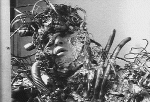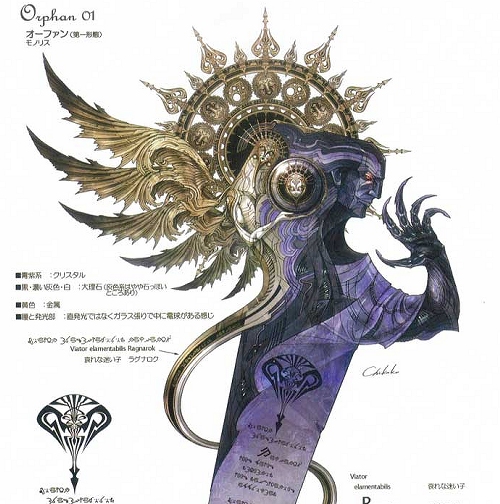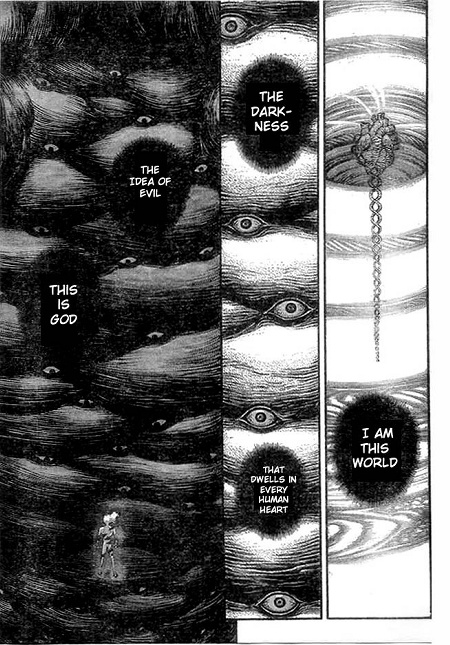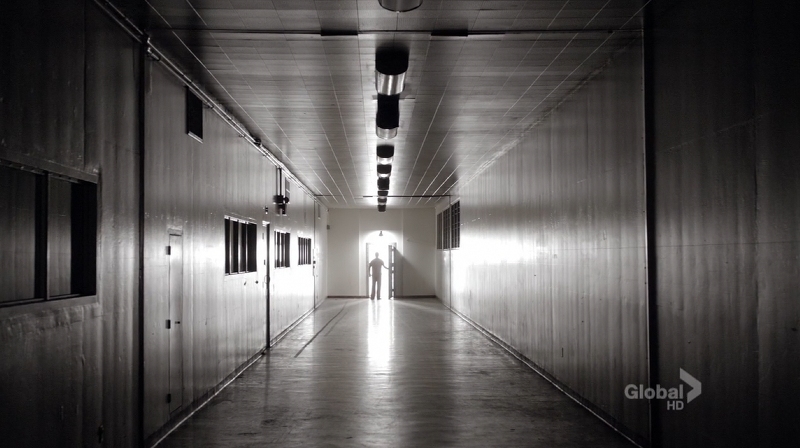I still consider BAFFLING that the name of Charles Manson still today evokes the idea of the most terrible and dangerous serial killer in US history. A figure not even remotely comparable to the recent true horror in Aurora, Colorado.
Yet the name Charles Watson, the one who was actually responsible of the murders attributed to Manson, is essentially unknown. He is still in jail, like Manson, but operates through friends a disconcertingly named site: aboundinglove.org
Yet, no matter what theory you can decide to embrace, Charles Manson never killed ANYONE. This is the only uncontested truth in the whole thing, but almost no one knows it because the image of the serial killer was superimposed on him. I wonder how a country can live and prosper upon such a skeleton, but then I also think that every country does. Every country has its own dismaying skeletons, terrible crimes and abuse of power in the name of some greater good that is wielded like a weapon.
The most dreadful aspect in this thing, a real assault on truth and freedom of speech, is that Manson was found guilty of “conspiracy” (so not serial-killing). But he’s known as serial killer for the media and general public because in America’s law system there’s a rule that basically says that planning a crime is equivalent to performing it. So if you tell someone to go kill someone else, and he goes and does it, both of you are guilty of murder. Hence Manson “inherited” crimes performed by others who claimed of having done them by following Manson’s instructions.
This gets real dangerous the more you get closer to the blurry edges: say you are a writer or a musician. You write a text that is highly symbolic and ambiguous. Some maniac reads it and interprets it in his own foolish way and then proceeds to commit crimes in YOUR name. Because he claims he simply follows those messages that were hidden in your work. So next you find yourself in jail, with a death sentence.
You may consider my example extreme and totally unplausible, but this is a big theme. I was discussing it when trying to defend R. Scott Bakker from the assault of the followers of RequiresHate internet cult. This was my message on abstract, describing another of those fanciful scenarios that look completely impossible, but that become more possible with every passing day (as long the blurry edges aren’t cleared):
Let’s try an experiment and COMPLETELY switch the context so that it is cleared of all pre-existing judgements:
Let’s say I’m a movie director who decides to make a documentary on the horrors of Hiroshima. I want to show the deaths and the consequences of the bomb, the radiations, the mutations that the people had to cope with along many years. In order to achieve this, I want to make it shocking. I want to show the real images of that horror, without any censorship and without employing a consolatory narrative filled with feel-good rhetoric. I want it to be a punch in the gut so that who sees it won’t easily forget it. Like a memory scar, because some things shouldn’t be allowed to be forgotten, especially if painful.
So the movie is indeed very crude. It comes out and one day a random guy goes to see it. When he comes out he makes the following statement: “This documentary shows the obsession that the director must have had with Hiroshima for a very long time. You can even find implicit traces of it in all his previous works. It is evidently an endorsement for war and slaughter as everything is shown in a so inhuman way that no one sane could have sustained. By showing only Japanese victims it reveals an hidden racist vein, imparting systematically that violence on a specific race, without any mention of similar tragedies that happened in history. The images of the mutations are so crude that they could be described as pornographic and I can imagine the director having edited this while masturbating to them. The whole thing is like an ode to that slaughter, filled with nostalgia as if it was some great event that he’d like to reenact in some way. He is a very sick, deranged person that should seek medical attention, and a real danger to us all.”
Now obviously, being the director, I can’t feel offended by this, nor I should defend my work and its actual purpose I tried to achieve with it.
Instead I should say: “I’m dismayed to hear that guy’s declarations. I can now see clearly what I’ve done. Evidently that spectator was able to reach a so deep insight that he opened a window into my subconscious and reveal what I truly wanted all along, but that I’m too scared to accept. Yes, I am a sick man and now detest myself. Help me, I need medical attention, or I may hurt someone for real if that part of my subconscious takes over me.”
–
Now simply answer me: do you find anything wrong with that?
This theme even returns in the last interview with Erikson I linked in the previous post, but he only circles around it by saying that the possibility of misunderstanding and misinterpretation can lead to self-censorship and that he kinda tries to address this by having a moral positive subtext. But the theme of responsibility is a big open wound, and one that isn’t easily treated at all. I have no answers myself because I recognize both the responsibility AND the right to express yourself without restraints. Because I believe that any form of censorship only exacerbates the problem and is never a solution.
In the case of Manson the man was used for a social function. Made into a symbol that he didn’t seek himself, but that was needed by the American culture to put a brake to the dissolution it was falling in. Manson was made into an example. Communities of hippies, that were becoming a REAL risk to the integrity of America’s social structure, with their free drugs and licentiousness, became criminalized.
This was the story that was needed to steer the masses back into control. The most absurd conspiracy theories were fabricated and attributed to Manson, who could only “play” the demon that was painted on him. He was indeed a shaman. He accepted the role, becoming a victim so that he could exorcize America of the crimes it was responsible of. He was made, simply, into a scapegoat. A sacrifice.
I have no idea if there was value in Manson, the man. Because what arrived to us is only Manson the demon. He’s not a myth of mine, but I do find a certain depth in the things he said to the jury when he was allowed to speak for more than an hour, freely.
Manson surely wasn’t a kind, lovable man. But he also wasn’t a murderer (even less a serial-killer). This is a fact. You can then guess whether or not he was a conspirator who sent his men to commit the murders. No one can say for sure because these things are always ambiguous, but if you were to read the details you’d be aware of how absurd, illogical and implausible was the accuse, and how linear and significant was the alternative theory that never had a chance to be brought up in the trial. This doesn’t make anything CERTAIN, but it should be enough to rise legitimate doubts.
The alternative theory is that this story was a cover-up to something big that was happening and that caused the murders. A cover-up made with the complicity of the police. It was related to the Mafia, the drug distribution and rival clans that competed for the “high places”. It is likely that the Mafia at the time had a VERY strong grasp on the whole Hollywood ambient, and the drug rings that circled around it. Manson, the artist, poet, musician, was the weirdo hippie that was often celebrated and invited into these parties of celebrities.
But the state wasn’t interested in the shadow of the Mafia and its pervasiveness in all things, it was interested in Manson, the symbol of a counter-culture threating the status-quo. It took three months before Manson’s name was brought up and linked to these murders. Three months to fabricate the story exactly as it was needed. Obviously, the role of the mafia in these murders was completely hidden, and Manson considered the only responsible, organizing a conspiracy entirely based on hidden messages heard by playing The Beatles’ records backwards. True story. The official story. The story that could fire the imagination of the media and general public, a perfect cliche of satanism mixed with rock bands and sensationalism. The story that many people wanted to be true, and made it so. Sometimes I wonder, regardless of which country you live in, if the “law” is only a thin coat of paint laid upon a huge rotten core. I know that in Italy where I live we had and maybe still have similar problems, with the Mafia deeply rooted into the economy and the politics, possibly replacing what is usually called a “state”.
To add color to folklore there’s also this little true trivia: the judge in Manson’s trial liked to go in the court room with a gun holstered under his dress.
But the most baffling thing I noticed and that gave me the motivation to bring this up again, is that I found out that the fancily named (and famous, since he wrote a book that made a lot of money, something I don’t think is exactly morally acceptable on such a theme and direct involvement) Vincent Bugliosi, the Manson’s prosecutor, and the one who came up with the most absurd conspiracy theory even conceived (and fabricated), wrote in 2008 a book of 1612 pages (!!!) on Kennedy’s assassination. Claims this is his “magnum opus”, like something he should be proud off.
He puts a bombastic title on this ultimate work of his: “Reclaiming History: The Assassination of President John F. Kennedy”
Reclaiming history.
In his career at the L.A. County District Attorney’s office, he successfully prosecuted 105 out of 106 felony jury trials, including 21 murder convictions without a single loss. His most famous trial, the Charles Manson case, became the basis of his classic, Helter Skelter , the biggest selling true-crime book in publishing history.
Notice that the book on Manson was titled “The True Story”. Just to make sure his readers don’t incur into doubts.
Reclaiming History: The Assassination of President John F. Kennedy was a New York Times bestseller and has been heralded as “epic” and “a book for the ages.” HBO, in association with Tom Hanks’ PlayTone Productions, will be producing this as an eight-hour miniseries in 2013, the 50th anniversary of the Kennedy assassination.
Quoting:
“Unless this fraud is finally exposed, the word believe will be forgotten by future generations and John F. Kennedy will have unquestionably become the victim of a conspiracy. Belief will have become unchallenged fact, and the faith of the American people in their institutions further eroded. If that is allowed to happen, Lee Harvey Oswald, a man who hated his country and everything for which it stands, will have triumphed even beyond his intent on that fateful day in November.”
John F. Kennedy, the victim of a conspiracy.
I really can’t understand how the man who fabricated the most insane, absurd and convoluted conspiracy theory ever (to pin on Manson and give the media the colorful story they needed), can so candidly affirm that nothing happened with Kennedy’s assassination. A fool just shot the president. It happens.
That’s your story. That’s your country. That’s the bones you crunch underfoot. Live and prosper, swimming in truth. And sleep well.
P.S.
Interesting idea: Charles Manson as a mhybe (sorry Erikson, for perverting your idea). An empty vessel. Something you slice away from you and project/inject in it the worst of you. To then banish it and feel purified.

 And a bit of Malazan and Prince of Nothing too (men are ever deceived).
And a bit of Malazan and Prince of Nothing too (men are ever deceived). Much later in the game not only it is revealed that the girl herself knew very little and was also being manipulated and used as a pawn in a larger plan, but that the party had been constantly followed by an “invisible hand” that nudged them onward, kept them on their course and even helped them at crucial moments, literally saving their life. All the while, though, the characters were ALWAYS convinced of following their own will, their morals, fighting for freedom and other noble ideals with lots and lots of self proclaimed rhetoric that was used to establish the characters as REAL HEROES. That amusingly never knew what they were doing for all the 60 hours the game lasted, wrongly “appropriating” the responsibility and merit of their actions, up to the final scenes, until the control is almost symbolically wrestled out from the player and the last CG sequence starts.
Much later in the game not only it is revealed that the girl herself knew very little and was also being manipulated and used as a pawn in a larger plan, but that the party had been constantly followed by an “invisible hand” that nudged them onward, kept them on their course and even helped them at crucial moments, literally saving their life. All the while, though, the characters were ALWAYS convinced of following their own will, their morals, fighting for freedom and other noble ideals with lots and lots of self proclaimed rhetoric that was used to establish the characters as REAL HEROES. That amusingly never knew what they were doing for all the 60 hours the game lasted, wrongly “appropriating” the responsibility and merit of their actions, up to the final scenes, until the control is almost symbolically wrestled out from the player and the last CG sequence starts.


